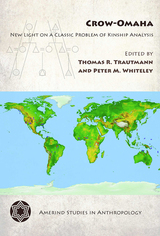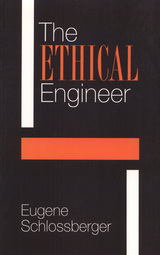
This volume examines the Crow-Omaha problem from a variety of perspectives—historical, linguistic, formalist, structuralist, culturalist, evolutionary, and phylogenetic. It focuses on the regions where Crow-Omaha systems occur: Native North America, Amazonia, West Africa, Northeast and East Africa, aboriginal Australia, northeast India, and the Tibeto-Burman area. The international roster of authors includes leading experts in their fields.
The book offers a state-of-the-art assessment of Crow-Omaha kinship and carries forward the work of the landmark volume Transformations of Kinship, published in 1998. Intended for students and scholars alike, it is composed of brief, accessible chapters that respect the complexity of the ideas while presenting them clearly. The work serves as both a new benchmark in the explanation of kinship systems and an introduction to kinship studies for a new generation of students.
Series Note: Formerly titled Amerind Studies in Archaeology, this series has recently been expanded and retitled Amerind Studies in Anthropology to incorporate a high quality and number of anthropology titles coming in to the series in addition to those in archaeology.

On occasion, professionals need to use moral reasoning as well as engineering skills to function effectively in their occupation. Eugene Schlossberger has created a practical guide to ethical decision-making for engineers, students, and workers in business and industry.
The Ethical Engineer sets out the tools and materials essential to dealing with whistle-blowing, environmental and safety concerns, bidding, confidentiality, conflict of interest, sales ethics, advertising, employer-employee relations, when to fight a battle, and when to break the rules.
The author offers recommendations and techniques as well as rules, principles, and values that can guide the reader. Lively examples, engaging anecdotes, witty comments, and well-reasoned analysis prove his conviction that "ethics is good business."

READERS
Browse our collection.
PUBLISHERS
See BiblioVault's publisher services.
STUDENT SERVICES
Files for college accessibility offices.
UChicago Accessibility Resources
home | accessibility | search | about | contact us
BiblioVault ® 2001 - 2024
The University of Chicago Press









